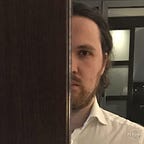Drinks are done
How low alcoholic beverages mark the final chapter of alcohol consumption
So-called hard seltzers have become increasingly popular in recent years, so has increased the amount of no/low alcohol beers.
Just look at the seemingly instant popularity of White Claw in 2019, well documented in this article by Barry Enderwick. The brand represents alcohol as such, given that the category of hard seltzer is relatively new. Taking a closer look at beer, the market share of alcohol-free beers in Europe has estimated CAGR’s of 7,5% p.a. from 2017 until 2024, according to GMI global report on non-alcoholic beer.
Even in the run-up to James Bond’s latest movie, Heineken, a long term Bond franchise sponsor, has created an ad to illustrate the shift from traditional alcoholic drinks towards, in this case, a low alcoholic beer of the brand.
Beverage makers have realized, not only due to observing everyone’s favorite customer stereotype, the millennial, but by simply looking at sales volumes, that alcohol is on its way to at least the coat check, if not the door. Investments such as Diageo’s in Seedlip, which it later acquired, represent just one of many acquisitions in the industry that is strategically shifting.
Drinking alcohol is still popular, especially in social settings. However, the increased awareness of alcohol’s effects, and an increased focus on wellbeing lead to the demise of high alcohol, high amount of drinks evening. The fact that you can enjoy the complex flavor profile of a drink at three pm without the buzz that an Old Fashioned would entail makes non-alcoholic beverages even more enticing.
The question this leads to is, how will it influence culture, more precisely, will we continue to “get a drink” if it no longer includes the component of letting loose a bit because of what many associate with consuming alcohol ?
The constant focus on eating well, drinking only in moderation, optimizing your time to squeeze in one more TED talk and yoga session. Will this lead us to a time in which getting a drink will no longer be considered efficient ? Let’s be honest, you could have met their friends at SoulCycle instead and DM with them about the latest topics, rather than putting on something chic and chat the night away in a speakeasy. In my opinion, there is a scenario in which alcohol will one day disappear from our ingredient lists, something that does no longer suits attitudes, intentions, and thanks to big data and highly personalized insurance quotes, even be allowed for some.
Remember
Always drink responsibly. Do not drink and drive.
